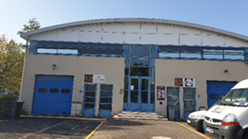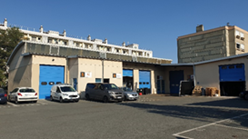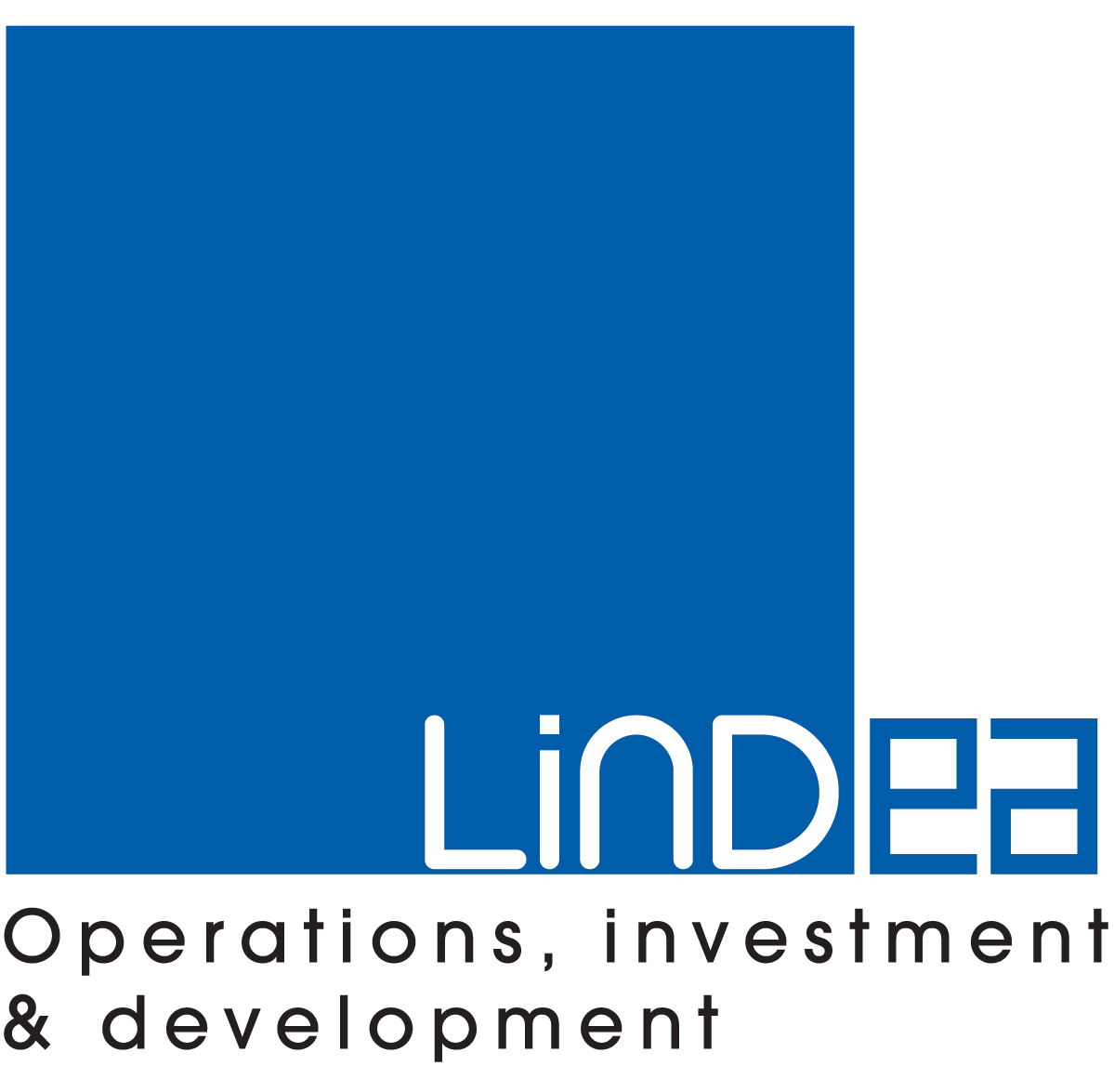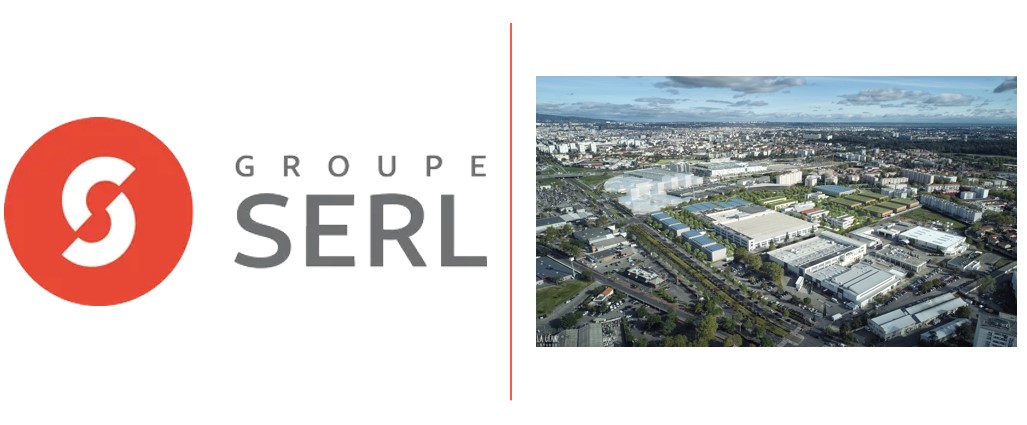The interview statements are complemented by illustrations of joint actions between SERL and Lindea, as well as elements of Lindea’s methodology and information provided by SERL.
Adaptation of businesses and work organizations to the new post-lockdown landscape and enhancement of the human quality of work:
How does the episode we collectively experienced in 2020–2021 reinforce or, on the contrary, lead to changes in SERL’s offer to its professional clients, for their individual site projects, within the business parks developed by SERL or the Business Villages?
Some fundamentals—such as project organization, the autonomy of Project Directors, and team mobilization—were already in place within the company, enabling us to adapt quickly and (re)establish a working framework for businesses that, with appropriate health measures, allowed construction sites and studies to continue progressing without being penalized, while maintaining close contact with our clients.
The same attention was given to our tenants, for whom swift and tailored measures were implemented, adapted to each situation depending on the nature of their activity, over time, and according to the severity of the lockdown.
What greatly helped us was having already adopted a remote working approach. This initiative, launched voluntarily as early as 2019, was able to be expanded rapidly.
This collectively challenging period reminded us of our need to work together, with multidisciplinary teams, alongside users and residents. Our commitment and highly cross-functional organization—where each Project Director is fully responsible for their operation—cannot sustain long-term distance, even if video calls were very helpful in maintaining our connections. These relationships, including with residents, must be preserved, and new forms of community engagement were implemented—some of which will remain.
We feel an urgent need—and a strong desire—to reconnect.
Regeneration and revitalization of economic activities, both conventional and innovative, within the territories:
What are SERL’s specific strengths in this area, as a developer, promoter, and investor?
The Group operates across the entire real estate value chain: development, construction, and investment, drawing on complementary components such as site operation—including industrial sites—service development, and even energy production. To carry out these various activities, the SERL Group can operate on behalf of clients as well as on its own account through subsidiaries.
For over ten years, the SERL Group has expanded its range of expertise in order to offer a broader service offering and better meet the expectations of local authorities. In this regard, Serl@immo, a subsidiary of SERL, currently owns and manages over 60,000 m² dedicated to businesses, with more than 8,000 m² in the design/construction phase—across 14 sites.
Similarly, upstream in the process, SERL teams are able to respond to the definition of needs through programming assignments that help anticipate the project owner’s challenges in terms of cost, timeline, and environmental performance, as well as their needs for legal, administrative, and financial expertise.

Coordinated and collaborative development and real estate actions: the success of a concerted urbanization project could increasingly be measured by the realism of its objectives and resources, as well as by its ability to offer flexible and adaptable solutions that are compatible with urban constraints, quality of life, and environmental preservation.
What role do these criteria play in SERL’s thinking and actions?
These are the pillars of our projects, but they evolve and become more defined. In 2008, we spoke of Sustainable Development and environmental management; today, we speak of transition and the low-carbon city by adapting our tools and proactively offering solutions to our clients.
In order to limit silo effects and to make the most of a team of professionals with diverse backgrounds, SERL’s organization aims both to deepen the specific expertise of each profession and to foster cross-functionality. Beyond individual expertise, the Group’s strength lies in its ability to facilitate dialogue among the men and women who make it up, for the benefit of its clients and partners.
This organization enables the emergence of numerous project situations, each serving as a foundation to build and propose solutions to our clients.
Thus, in 2019, SERL employees collectively defined the three fundamental dimensions of innovation at SERL:
Aussi, en 2019, les collaborateurs de la SERL ont défini collectivement les 3 dimensions fondamentales de l’innovation à la SERL :
- An inclusive dimension, by bringing together an ecosystem of stakeholders around projects to meet the needs of the greatest number in the public interest;
- An environmental dimension, by developing urban and real estate projects that create a living environment adapted to the climate challenge;
- A long-term dimension, by committing to projects that align with a responsible vision for the future of the territories.
In particular, in your role as a developer, what changes are you observing in the management of issues and requirements related to water, wildlife and flora, protection against industrial risks, and mobility, in order to successfully carry out an urbanization or renewal project?
Our development operations are, of course, based on the regulatory framework of administrative, urban planning, and environmental authorizations. Development projects are commissioned by local authorities—with the Metropolis being our most important client in this area—and are supported by virtuous public policies at the broader territorial level, in terms of preservation and enhancement, as well as risk protection.
Heatwaves, COVID, and other events have reaffirmed—if proof were still needed—the necessity of limiting resource consumption and preserving them. Residents and users are sensitive to these forms of urban discofort, both personally and collectively, and these issues will become even more critical in the future.
Encouraging responsible financial and real estate investments that promote sustainability as well as economic and ecological performance:
For SERL@immo, as an investor, what are the practical realities and future developments in its investment choices, the selection of operators-tenants, and also in the management of its real estate projects?
This subsidiary, led by Yves MOLINA, Deputy Director, and Nelly COPERET, Head of Serl@immo, embodies the core values of SERL’s Public-Private Partnership model.
In over 10 years, Serl@immo has built strong expertise in real estate structuring and investment vehicles, both from legal, administrative, and financial perspectives (real estate subsidiaries, commercial property companies, equity stakes in SEMOPs, SCCVs, etc.) and from an operational standpoint (direct project management, CPI or VEFA contracts, organization of operations, etc.).
This expertise is applied with agility to each project to determine the most appropriate structure based on the project’s challenges and objectives, as well as financial considerations (required equity, risk-sharing, desired partnerships, use of loans, etc.). As a result, the SERL Group has earned the trust of co-investors as well as banks to secure project financing without relying on financial guarantees or budgetary support from local authorities.
Under the supervision of the parent company’s governance bodies, this expertise enables the SERL Group, through Serl@immo, to:
- Create and manage investment vehicles to support projects: legal, administrative, financial, tax, and accounting structuring, along with budget control;
- Invest in, acquire, and build full ownership properties (land, volumes, condominium units) or through construction leases, long-term leases, VEFA contracts, direct project management, or CPI contracts, and develop high-quality real estate (Effinergie+ or BREEAM environmental certifications for commercial spaces in Girondins, timber structures and photovoltaic systems for service hubs, renovation of older business parks with improved energy performance);
- Make divestment decisions to reinvest in new projects by selling off assets once they have reached maturity;
- Take equity stakes in SEM or SEMOP entities, depending on opportunities, to support the development of the SERL Group (e.g., NOVIM, SEM Plaine de l’Ain Développement, SEMOP Foch-Sully).



Your insight on how the four themes we have just discussed are addressed within SERL’s projects:
How does the recent USIN project in Vénissieux, as well as the long-standing experience of the SERL Villages, address these themes?
Within the framework of these two multi-business space concepts, what solutions are offered to emerging industries, innovation drivers, and early-stage ventures?
Through Serl@immo, the SERL Group invests its own equity—either independently or in partnership with financial and/or private operators—in targeted projects that support structuring urban initiatives, foster economic development, and promote research and innovation. In doing so, it addresses needs that are not typically met by private players, due to long-term profitability horizons and the significant investment required during the development phase.
Serl@immo thus offers a real estate solution that is tailored, sustainable, and efficient for hosting businesses, artisans, retailers, and manufacturers, while encouraging innovation and job creation.
The real estate response provided to the territory and its businesses through these two concepts—Villages and USIN—combines attentive, technically integrated property management with the full range of SERL’s resources and expertise.
This know-how now makes it possible to invest in increasingly complex projects, complementing SERL’s core businesses of urban development and construction, and supporting the development strategies of local authorities and the Group itself.
The preservation of productive activities in urban areas—one of SERL’s key innovation themes, alongside User Engagement, Health & Wellbeing, and Resources & Circular Economy—opens up a wide field of thought and action. This includes ongoing work on long-term adaptation of villages, the programming of future business sites, and the exemplary nature of our construction investments.
This “productive city” theme provides concrete responses by generating economic activity and creating jobs. SERL innovates by offering services that revitalize neighborhoods, urban and peri-urban centers, and new-generation business zones. Process-driven innovation makes it possible to forge partnerships, create new governance models, and enhance land value.
The productive city theme continues to grow in connection with urban industry, business centers, mixed-use blocks combining housing and economic activities, new models for temporary occupancy, agricultural production, and more.
And we’ve already launched, together with LINDEA, the Village 4.0.
pictogrammes : flaticon

